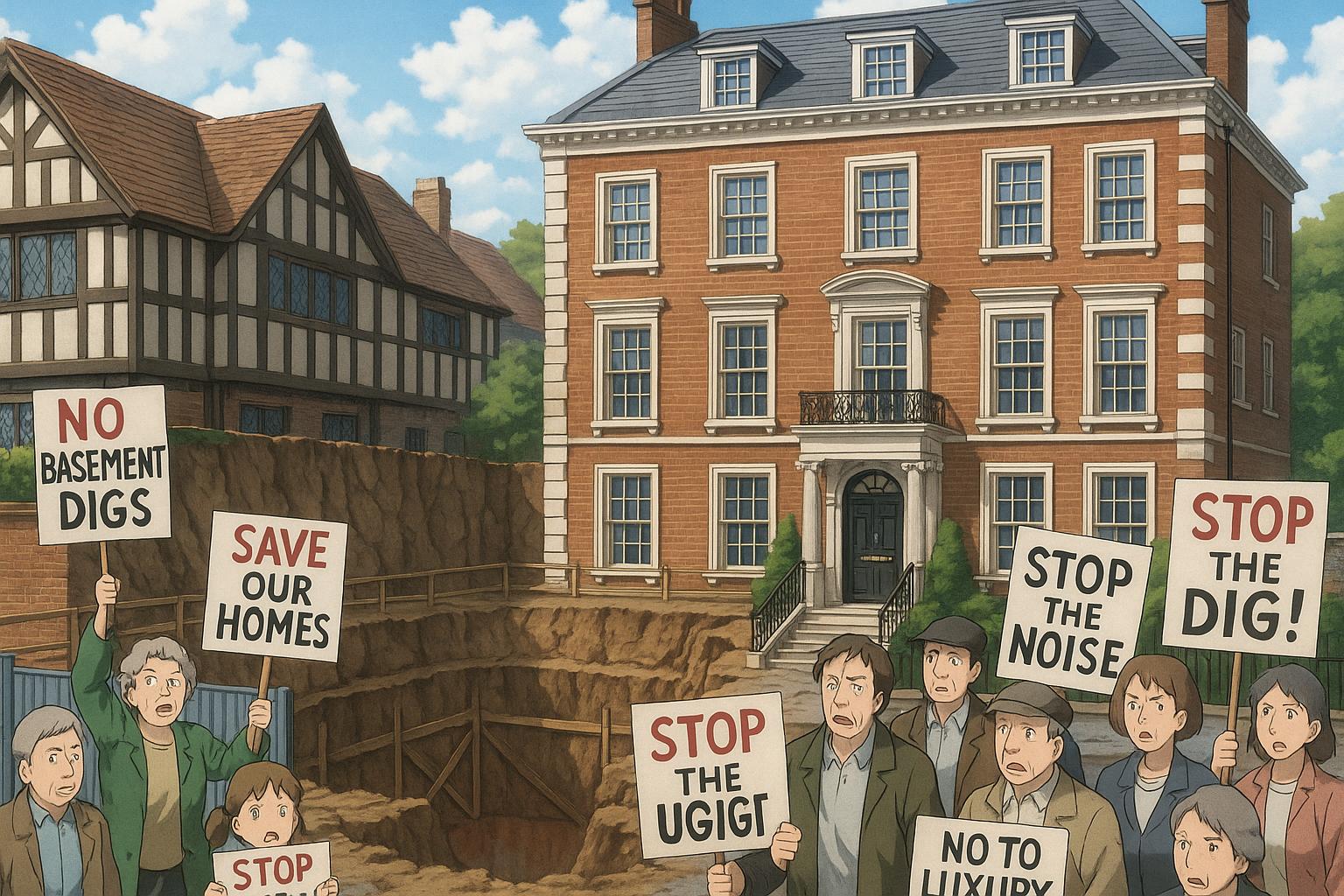Chelsea recently attracted attention with its vibrant RHS Flower Show, graced by King Charles and numerous celebrities, but a contentious planning application has taken centre stage among local residents. Tech entrepreneur Peter Dubens, whose fortune is estimated at £100 million, seeks to excavate a massive 7,760 sq ft basement beneath his £10 million house, projecting a completion time of two years. This underground leisure complex, intended to feature amenities such as a health spa, cinema, wine cellar, and golf simulator, has drawn significant ire from neighbours who deem it an extravagant 'vanity project.’
The uproar, as reported by local media, stems from fears of disruption, including noise, traffic congestion, and potential damage to historic structures. Critics have highlighted that previous renovations undertaken by Dubens already caused considerable inconvenience, with reports of over 100 vehicular movements estimated per week during construction. These concerns echo a broader discontent regarding the trend of "iceberg homes" in London, where extensive underground developments have proliferated, often without adequate consideration of their impact on local communities.
According to a report, the Royal Borough of Kensington and Chelsea, which has seen a staggering increase in basement planning applications—from 46 in 2001 to 450 in a single year—has witnessed a backlash from residents. Notable figures, including celebrities, have publicly expressed their frustration over the disruption caused by such projects. The situation has prompted the council to intensify scrutiny and enforcement; local authorities have implemented measures to limit basement developments, aiming to preserve the area's character and livability.
Particularly contentious is the proposed excavation's implications for a Grade II listed Tudor wall, part of the historical fabric of the region that dates back to Henry VIII's time. While Dubens's representatives assert that all necessary precautions will be taken to safeguard this heritage asset, many locals remain unconvinced. They argue that even minimal disruption from construction will lead to irreparable damage, complicating the dynamic of community cohesion that the area has historically prized.
As the application is set to be reviewed by the council in June, residents have been vocal about their concerns. One local lamented, “This is nothing more than one man's appalling vanity project.” Statements of this nature reveal the depth of sentiment against developments that are perceived to place personal luxury over communal wellbeing. With significant pressure from the community, it remains to be seen whether the project will receive the green light or if the council will heed the residents' calls for a more restrained approach to urban development.
Dubens, who made his fortune initially through innovative ventures in the 1990s, moving into diverse sectors like telecoms, may find that his ambitions for luxury may clash with the needs and sentiments of the local community. As urban spaces like Chelsea continue to evolve, the balance between individual wealth and community integrity will undoubtedly remain a crucial point of contention.
Reference Map:
Source: Noah Wire Services
